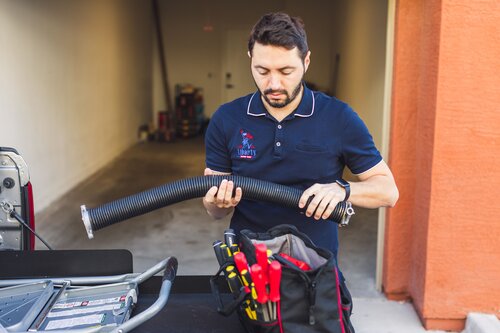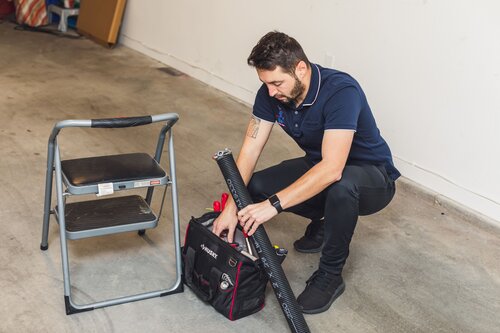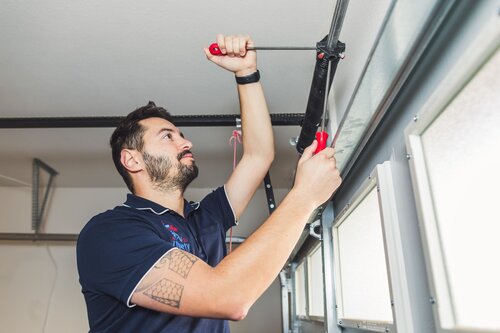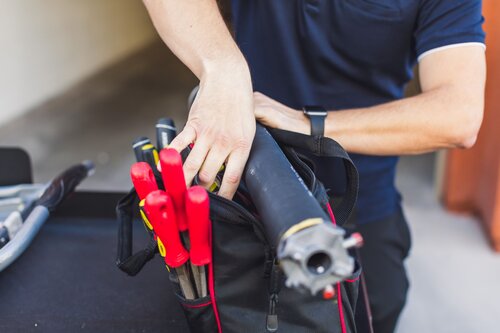SPRING ADJUSTMENT / REPLACEMENT FOR YOUR GARAGE DOOR
A repair common to all garage repair professionals is broken garage door springs. While a garage door opener is the mechanism for a garage door to open and close, it’s the springs which actually lift the weight. Springs should be adjusted and replaced as needed to keep them operating safely.
There are some ways you can take care of your springs, which is quite sensible given their lifting duties. First, have regular tune-ups, because they include a garage door expert who checks all of the components of your garage door for wear and tear. Having an expert catch something before it goes amiss is much easier than waiting until the hardware holding that heavy door has a problem!
You can also replace them in pairs, just like shoes. Like shoes, your garage door springs have a limited number of miles on them. When one fails, it means they’re both at the end of their life, and the one that didn’t fail isn’t actually ‘okay.’ So only replacing one is weird, because they’ve both had the same number of ups and downs. Finally, buy good springs. Like shoes, garage door springs should ‘fit’ the garage door. Also, like shoes, the better the quality of the material, in this case, steel, the longer the garage door will last. The right springs will provide the perfect balance for your garage door.




GARAGE DOOR SPRING FAQS
WHAT IS THE AVERAGE LIFE OF A GARAGE DOOR SPRING?
Spring life isn’t calculated in years. Instead, it’s calculated by the number of cycles it will last. A cycle is up-and-down one time. Average quality springs will last around ten thousand cycles, respective of maintenance, and other factors. So, your garage life will depend on the care you give your garage door and the frequency with which you use it.
HOW MUCH DOES IT COST TO REPLACE A GARAGE DOOR SPRING?
The price of the spring will depend on the type of spring, the size of the door, the weight of the door, and the style of the door. There are literally dozens of different types of garage door springs. In order to give a good estimate, we’d have to know the information about each of those factors to give you a good estimate.
WHAT ARE THE DIFFERENT TYPES OF GARAGE DOOR SPRINGS?
There are two types of garage door springs–the torsion spring and the extension spring. Torsion springs rest above and parallel to the garage door. Extension springs run parallel to the track. Their function is to counteract gravity, a delicate balance that makes that 400-pound door move as smooth as silk.
ARE TORSION SPRINGS BETTER THAN EXTENSION SPRINGS?
Torsion springs last up to twice as long as extension springs. But, they are more expensive than extension springs, too, which makes it important to make a value judgment about which type of spring you want. Some people decide they want garage door springs that will last as long as possible. Other people may not choose to spend their money on better springs.
